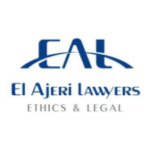-
Overview
The Spanish real estate market has two main highlights to be considered on the legal side when considering making an investment in any of the different regions of the country:
- The urban planning regulations are different in the 17 Autonomous Communities, and local knowledge is essential in this field.
- Pure real estate applicable regulations have a common legal regime, but some specifics have to be considered in some regions (e.g. Catalonia, Balearic Islands, etc.).
Therefore, a proper Due Diligence exercise will require not only the expertise in complex real estate transactions, but also local knowledge regarding the region where the transaction is going to take place.
Our answers to the question in this Guide cannot be considered as an assessment on the matters referred below and should be confirmed by reviewing the applicable regulations in place upon the date of each concrete real estate deal.
-
What is the main legislation relating to real estate ownership?
Article 33 of the Spanish Constitution recognises the right to private property and inheritance. In addition, this section includes an expropriation guarantee stating that real estate ownership and property rights shall not be deprived except for justified reasons of public utility or social interest, with the corresponding compensation and in accordance with the provisions of the law.
Spanish Civil Code (Articles 348 to 391) regulates real estate ownership rights.
The right to property, as constitutionally defined, its exercise and its boundaries, are developed by the following regulations:
Act 12/2023, of 24 May, on the Right to Housing;
Act 49/1960, of 21 July, on Horizontal Division;
Act 29/1994, of 24 November, on Urban Leases;
Royal Legislative Decree 7/2015, of 30 October, on the Land Act;
Act 38/1999, of 5 November, on Building Development (LOE).
Additionally, the Mortgage Act, dated 8 February 1946 (and Mortgage Regulations, dated 14 February 1947), which establishes the main rules for mortgages in Spain must be considered.
-
Have any significant new laws which materially impact real estate investors and lenders come into force since December 2023 or are there any major anticipated new laws which are expected to materially impact them in the near future?
Royal Decree-Law 8/2023, of 27 December, that came into force on 29 December 2023, by virtue of which Act 49/1960, of 21 July, on Horizontal Division, has been modified as regards to the following: (i) the reduction of the majorities required within the building owners meeting to approve and execute works that improve accessibility in buildings and (ii) rebate on Property Tax (IBI) for properties that incorporate renewable energy systems or accessibility improvements, among others.
As regards to the Act 12/2023, of 24 May, on the Right to Housing, and despite that it came into force in May 2023, it is important to consider the following:
(i) In relation to dwelling lease agreements, the Act defines areas with tensioning residential markets for a period of 3 years, extendable annually, to apply rent reduction measures. Maximum annual rent increase of 3% in contracts in force during 2024. Starting in 2025, a new reference index shall be introduced for annual updates, replacing the CPI:
- Large landlords (i.e., owners of more than 10 dwellings or 5 depending on the Autonomous region of Spain) will not be able to enter into new leases with prices higher than the Reference Index for their area, nor with increases greater than the maximum allowed update increase from the previous agreement price.
- For small landlords increases in new agreements can only be the percentage of the allowed annual update on the previous contract price. Additionally, rent for properties that have not been rented out in the last 5 years may be limited to the maximum price set by the Reference Index.
Directive 2021/2167 of the European Parliament and the Council, dated November 24, 2021, establishes the regulatory framework for credit servicers and credit purchasers, amending the Consumer Credit Directive and the Mortgage Credit Directive to enhance borrower information regarding contract modifications.
The Spanish Government initiated the public consultation process for transposing the Directive in October 2022, which will impact the real estate (credit) market but even though the deadline foreseen in the Directiva has been reached (29th December 2023), no draft has been published yet and the.
-
How is ownership of real estate proved and are ownership records available for public inspection?
Real estate ownership is primarily verified through the Property Registry, which is the legal institution responsible for the publicity of ownership and other real rights over real estate assets, as well as the registry protection in accordance with the principles of public faith and legitimation. Although its content is challenged in court or the interested party is aware that the Property Registry information is not accurate, the real estate players may rely on the Property Registry information.
Registration with the Property Registry is voluntary and declarative and is carried out at the request of the interested party. Exceptionally, registration with the Property Registry is constitutive of rights over the property, as mortgage or surface rights. Registration also produces legal effects towards third parties protection by applying public faith principles (section 34 of the Mortgage Act).
For ownership titles to be registered, they must be set forth in a public deed, court judgment, or an authentic document issued by a judicial authority, which ensures the authenticity and truthfulness of the registered information. The public faith of the Property Registry ensures that the data published in the Registry is presumed to be true, providing legal certainty to property rights.
Furthermore, the Property Registry is public, but only for those individuals who have a legitimate interest in knowing the registration status of a property, an interest that shall be assessed by the Property Registrar as appropriate in each specific case.
-
Are there any restrictions on who can own real estate, including ownership by any foreign entities?
In Spain, as a general rule there are no restrictions on acquisition or transfer of real estate assets. However, in case of foreign entities declarations on investments shall be made with the Spanish competent authorities. Furthermore, investment on regulated industries are subject to prior authorization by the Spanish competent authorities as those related with transportation, energy, hydrocarbons, public defense or public health.
Nevertheless, in connection with specific investments, Royal Decree 571/2023, of July 4, on foreign investments regulates certain restriction on investments in certain strategic sector in Spain that need to be considered when analyzing a specific transaction.
-
What types of proprietary interests in real estate can be created?
Rights over real estate assets are classified as follows in accordance with Spanish Law:
a) Ownership: is the most complete right over an asset and comprehends the right to fully enjoy, use and dispose (i.e., to transfer, to encumbrance, etc.). Consequently, fully ownership allows the owner of a real estate asset to protect its property and to prevent any third-party unlawful possession.
b) Limited real rights over real estate assets: in addition to ownership, real rights over the assets may be constituted in order to allow other parties to legally enjoy or exploit the assets. In this event, these parties are entitled to act directly against third parties who may disturb the exercise of the right or oppose it. In accordance with its nature, Spanish Law regulates the following:
(i) Real rights of enjoyment: allow their holder the use or total or partial exploitation of the real estate assets (i.e., usufruct, easements, rights of use and habitation, emphyteusis or surface rights).
(ii) Real rights of guarantee or realization of value: grant their holder the power to demand the alienation of another’s property to obtain its monetary value. Commonly, these rights are constituted as a guarantee of the fulfillment of an obligation (i.e., mortgage or pledge).
(iii) Real rights of acquisition: grant the power to acquire another’s property in the event that it is alienated by its owner (i.e,, rights of pre-emption and redemption and the right of option).
-
Is ownership of real estate and the buildings on it separate?
No. Despite property rights may differ, ownership rights over a real estate asset embraces the buildings located in the property. The property registrations in the Property Registry detail the constructions located on a property under the same owner.
Nevertheless, the creation of surface rights (derechos de superficie) is possible under Spanish Law. Such surface rights enable the owner to build over the real estate asset and acquire the temporary ownership (up to 99 years) over the construction executed over the real estate asset.
-
What are common ownership structures for ownership of commercial real estate?
Commonly commercial real estate properties are acquired and transferred by Spanish capital companies (i.e., limited liability companies or public limited companies). If the real estate properties acquisition is carried out for investment purposes and they are fully allocated to rental, the properties may be acquired by Spanish Real Estate Investment Trusts (SOCIMI) regulated by Act 11/2009, of October 26.
-
What is the usual legal due diligence process that is undertaken when acquiring commercial real estate?
In the framework of a real estate transaction, legal due diligence analysis contains the following sections:
(i) Review of the relevant Property Registry excerpt and of the ownership title of the real estate properties to confirm the ownership and the existence of charges, encumbrances or third parties rights over them, as well as cadastral information on the properties.
(ii) Review of applicable urban planning: (i) urban classification and qualification and (ii) urban planning parameters (i.e., permitted uses and parcelling or building parameters).
(iii) Analysis of any lease agreement related to real estate properties in order to identify: (i) clauses that may be triggered in light of the envisaged transaction (in particular change of control provisions, early termination, rent reviews and other penalties) (ii) right of the counterparty to early terminate the agreement without cause; (iii) exclusivity clauses; (iv) null and void clauses according to Spanish Law; and (v) preferential acquisition rights, if any.
(iv) From a tax perspective, analysis on applicable taxes on the transfer of the real estate properties and compliance with the payment of applicable taxes over the real estate properties by the seller (i.e., property tax (IBI) and municipal taxes).
(v) Litigation: analysis on any administrative or judicial proceedings that may affect the real estate property.
-
What legal issues (if any) are outside the scope of the usual legal due diligence process on an acquisition of real estate?
Analysis on other agreements related to real estate properties (as insurances, supplies, guarantees, etc.) are outside of the scope of legal due diligence process but may be included in accordance with transaction’s nature.
In addition, technical analysis over the real estate properties (including analysis on energy supplies, building viability, urban development, etc.) are commonly outside of the scope of a legal due diligence but may be included depending on the needs of the purchaser.
-
What is the usual process for transfer of real estate, and when does liability pass to the buyer?
The transaction depends on the negotiation process. Prior negotiation phase with binding offers and preliminary private contracts are usual if solving pending real estate issues is required prior to the formalization of the deal.
In accordance with Spanish Civil Code, the transfer of the liability in connection with the asset takes place upon the delivery of the possession of the real estate property (“traditio”), which will trigger the legal effect of transferring ownership of the assets or real rights over the latter to the buyer. In this regard, such delivery of the assets make take place by the delivery of the access keys or, the usual manner is the granting of the public deed of sale, which legally is equivalent to the transfer of the possession of the asset if agreed by the parties.
-
Is it common for real estate transfers to be effected by way of share transfer as well as asset transfer?
Yes, but usually this decision relies on tax matters.
In any case, when the owner of the real estate asset is a PropCo, it is usual that the seller may negotiate the transfer of the company owning the asset to transfer the asset jointly with any other obligations affecting the seller as owner of the shares of the referred PropCo.
-
On the sale of freehold interests in land does the benefit of any occupational leases and income derived from such lettings automatically transfer to the buyer?
In accordance with Act 29/1994, of 24 November, on Urban Leases, in the event of a transfer of a leased dwelling (nor commercial leases or seasonal leases), the acquirer shall be subrogated in the rights and obligations of the landlord until the expiration of the mandatory term of the lease agreement regulated by the Act (i.e., five years if the landlord is a natural person or seven years if the landlord is legal person).
In other scenarios, the parties involved in the transaction shall comply with the stipulations of the lease agreement entered into with the landlord/seller and the lessee foreseen in the framework of a transaction of the asset (i.e., compliance with acquisition preferential rights, if any, termination of the agreement and payment of a compensation to the lessee, if applicable, or assignment of the agreement).
-
What common rights, interests and burdens can be created or attach over real estate and how are these protected?
As previously described, limited real rights over real estate assets may be constituted in order to allow other parties to legally enjoy or operate the assets. In this event, these parties are entitled to act directly against third parties who may disturb the exercise of the right or oppose it. In accordance with its nature, Spanish Law regulates the following:
(i) In-rem rights of enjoyment: allow their holder the use or total or partial exploitation of the real estate assets (i.e., usufruct, easements, rights of use and habitation, emphyteusis or surface rights).
(ii) In-rem rights of guarantee or realization of value: grant their holder the power to demand the alienation of another’s property to obtain its monetary value. Commonly, these rights are constituted as a guarantee of the fulfillment of an obligation (i.e., mortgage or pledge).
(iii) In-rem rights of acquisition: grant the power to acquire another’s property in the event that it is alienated by its owner (i.e,, rights of pre-emption and redemption and the right of option).
The registration of these rights in the Property Registry is the proper manner to protect its ownership against third parties, who cannot argue their lack of knowledge of its existence when acquiring the real estate asset charged with those rights.
-
Are split legal and beneficial ownership of real estate (i.e. trust structures) recognised?
These are not legally recognised as a specific structure.
-
Is public disclosure of the ultimate beneficial owners of real estate required?
Yes, by the notaries when executing the transaction. If the real estate asset is acquired by a company, when executing the transaction, a declaration of the ultimate beneficial owner should be required by the Notary Public to fulfill its records. Nevertheless, such information is not usually included in the drafting of the public deeds whereby a transaction is executed, as the market practice wording indicates that the notary has fulfilled the abovementioned obligations and has identified said beneficial owners for KYC purposes.
In addition, if justified, access to the Public Registry of Beneficial Owners can be requested by individuals or entities in charge of KYC duties in their companies.
-
What are the main taxes associated with real estate ownership and transfer of real estate?
In addition to the direct taxes related to entities and individuals and local taxes (Property Tax and Tax on the Increase in the Value of Land of an Urban Nature), that must be considered with the proper tax advice, the main indirect taxes are:
1.- Value added Tax (VAT), which may be borne by the company in a transaction but is also deductible unless the company is the final owner of the property. Its common rate is 21% of the transfer price.
2.- When VAT does not apply, the main applicable tax in real estate transactions is the Real Estate Transfer Tax (RETT), which, as a difference to VAT, is not deductible.
Analysing when the deal is subject to each one of them requires the proper tax advice.
-
What are common terms of commercial leases and are there regulatory controls on the terms of leases?
Commercial leases are regulated by the Act 29/1994, of 24 November, on Urban Leases. In accordance with the Act, common terms of these agreements shall be agreed by the parties, but in residential leases there are some compulsory rules that have to be complied by the landlord and protect the lessee.
In case of non-residential leases, the agreements between the parties have priority with the exception of some mandatory articles (legal guarantee, etc.). Nevertheless, as a supplementary regime, the Act regulates maintenance and construction obligations, the right of first refusal, the right of transfer, and the assignment of the agreement in mortis causa scenarios.
Main terms of commercial lease agreements are (i) object: permitted uses; (ii) term; (iii) (iii) rent and rent variation; (iv) termination; (v) rights and obligations of the parties; (vi) insurance and licenses; (vii) sublease and assignment; (viii) legal deposit and (ix) delivery and return of the property.
-
What remedies are commonly available for landlords in the event of a tenant breach of a commercial lease?
According to Spanish law, a breach of an agreement shall be stated if the following requirements are met: (i) if the potentially breaching party performance (or negligence in the performance) within the framework of the agreement is able to cause a quantifiable damage to the non-breaching party, (ii) there must be a causal link between the performance of the breaching party and the damage suffered by the non-breaching party, and (iii) the breach shall be provable through reliable evidence (such as documentary or testimonial evidence). In this event, and despite the agreement may not foresee the payment of any compensation in favour of the non-breaching party, section 1,124 of the Spanish Civil Code foresees that the non-breaching party is entitled (i) to claim for the termination of the agreement and (ii) to claim for a compensation (“indemnización por daños y perjuicios”) to the breaching party.
In addition, in some commercial leases the lessee is required to provide the landlord with an additional guarantee (bank guarantee or additional deposit) in order to ensure the fulfilment of existing obligations. In the event of a breach of the agreement by the lessee, the landlord is entitled to execute the additional guarantee in order to protect its rights and interests.
Nevertheless, in case of residential lease agreements, the applicable regulations set forth a specific regime related to eviction of the tenant, and foresees some specific provisions to protect the tenant that may be considered under a vulnerability situation.
-
How are use, planning and zoning restrictions on real estate regulated?
In Spain the capability to regulate in planning is assigned to the Autonomous Regions, and in addition, the concrete planning regulations of each municipality are reflected in its own master plan.
Therefore, in order to acknowledge the planning parameters and restrictions regarding a specific real estate asset, the relevant local regulations have to be reviewed.
If the real estate asset is a plot of land under development, the relevant planning management instruments have to be gathered from the City Council in order to know (i) if the final developable land exists or is still pending of the completion of the relevant planning management process (usually the allotment project and urbanization project) (ii) to be aware of the planning charges linked to the ownership of the asset, and (ii) ascertain if any constructive limitation will be in place upon issuance of the relevant works licence.
Once the plot meets a ready to build status, the granting of the relevant works licence is the main milestone to initiate construction, and such licence will set forth the limitations and obligations of the developer during the construction process.
-
Who can be liable for environmental contamination on real estate?
In accordance with the provisions of Section 100 of Spanish Law 7/2022, of April 8, on waste and contaminated land for a circular economy, the responsible parties for the decontamination and remediation of contaminated land are the polluters. If multiple polluters exist, they shall be jointly and severally liable for these obligations. Subsidiarily, the owners and possessors of the contaminated land shall be liable, in that order.
In cases involving public domain assets under concession, the liability falls firstly in the possessor and, secondly, in the owner; the latter in the absence of the polluter or polluters.
-
Are buildings legally required to have their energy performance assessed and in what (if any) situations do minimum energy performance levels need to be met?
According to Royal Decree 390/2021 of June 1, which approves the basic procedure for the energy performance certification of buildings, obtaining an energy performance certificate is mandatory in the following cases (Section 3.1 of the referred Royal Decree): (i) for existing buildings or dwellings that are sold or rented; (ii) for new construction buildings; (iii) buildings or parts of buildings where a public authority occupies a total useful floor area exceeding 250 square meters; (iv) building sectors required to have an energy performance certificate, mandatory for all buildings with a total useful floor area over 500 square meters intended for uses such as administrative, healthcare, commercial, public residential, educational, cultural, recreational activities, hospitality, transport, and sports; (v) for buildings or parts of buildings undergoing renovations or extensions, and those buildings that are required to undergo the Technical Building Inspection or equivalent inspection.
However, certain buildings are excluded from the scope of application (according to the Article 3.2):
a) Buildings officially protected due to their status as part of a declared environment or their particular architectural or historical value, provided that any energy efficiency improvement would unacceptably alter their character or appearance. The authority issuing the official protection determines the unalterable elements.
b) Temporary constructions intended for use for two years or less.
c) Industrial, defense, and non-residential agricultural buildings, or parts thereof, with low energy demand. Areas not requiring thermal comfort conditions, such as workshops and industrial processes, are considered low energy demand.
d) Independent buildings, not in contact with other buildings, with a total useful floor area of less than 50 square meters.
e) Buildings purchased for demolition or for renovations as defined in Article 3.1(d). These buildings are exempt from obtaining an energy performance certificate for existing buildings under Article 10, subject to compliance with Article 9 once renovations commence, as referenced in Article 3.1(d).
To enact the exclusion under section e), the building owner must submit a responsible declaration to the competent authority of the autonomous community regarding building energy certification. However, the competent authority of the autonomous community may implement a more stringent procedure.
-
Is expropriation of real estate possible?
Yes, by the competent authorities and subject to several legal requirements. Expropriation procedure is regulated in Law on Compulsory Expropriation of December 16, 1954. This regulation is developed by Decree of April 26, 1957.
The Law on Compulsory Expropriation enables Spanish Public Administration to acquire the necessary private properties to preserve the collective interest.
To proceed with compulsory expropriation, it is essential to have a prior declaration of public utility or social interest regarding the purpose for which the asset or right is to be expropriated. This declaration authorizes the expropriation of the necessary assets and rights for the fulfilment of those purposes, although it is not, of course, a legal qualification of the future expropriation action.
The assessment of the justification for expropriation, with the consequent declaration of public utility or social interest, is primarily the prerogative of the competent Administration to declare it and, if applicable, to exercise the expropriation authority. This authority is an instrument that public powers can use to fulfil the general purposes entrusted to them, so the determination of the causes that may legitimize expropriation generally falls within the scope of administrative discretion.
Judicial oversight cannot, therefore, extend to the substantive aspect of determining the cause for expropriation.
There are three possible procedures to declare the prior and necessary requirement of declaration of public utility or social interest:
(i) Implicit;
(ii) Generic with subsequent specification, and;
(iii) By legal regulation.
-
Is it possible to create mortgages over real estate and how are these protected and enforced?
Yes, mortgages can be created over real estate assets by the relevant owner of the asset in favor of third parties, securing the fulfillment of any kind of obligations as per section 1,861 of the Spanish Civil Code and section 105 of the Mortgage Act.
As previously mentioned, registration with the Property Registry is constitutive regarding mortgages, and the relevant agreements must be granted as public deeds (or private agreements raised to public status through the relevant public deed) before a Notary. In this context, Spanish Registries apply the principle “prior in tempore, potior in iure,” which implies that rights are ranked according to their date of registration.
In the absence of insolvency proceedings of the mortgagor, creditors (mortgagees) whose obligations are secured by a registered mortgage can benefit (subject, as applicable, to the rights under certain legal liens and any higher-ranking registered creditor) from enforcement proceedings to claim the secured and unpaid obligations (subject to specific rules of insolvency proceedings) through judicial or notarial proceedings (provided this alternative has been specifically agreed upon in the mortgage agreement).
The rank of the mortgage is significant, as higher-ranking creditors will maintain their rights after the conclusion of the relevant enforcement proceedings. In contrast, the rights of lower-ranking creditors would be extinguished in the foreclosure procedure, and such creditors would only receive any remaining proceeds once the debt secured by the enforced mortgage has been fully covered.
Regarding enforcement proceedings, in Spain, the appropriation of the asset is not allowed; instead, the procedures are carried out through public auction. Only in the case of a deserted auction or insufficient bidders is the adjudication in favor of the creditor permitted under certain conditions.
-
Are there material registration costs associated with the creation of mortgages over real estate?
As stated, mortgages must be granted by virtue of public deeds (or private agreements raised to public status through the relevant public deed) before a Notary. Consequently, the creation of mortgages entails the payment of Notary fees as well as fees for the relevant Property Registry.
From the tax perspective, Stamp Duty has to be considered, which may vary from 0.5% to 2% depending on the location of the real estate asset (there is a common framework, but the rates are determined by Autonomous Communities). The tax base regarding the initial registering of the mortgage is the total amount secured by the mortgage agreed in the mortgage agreement (market standard ranges from 115% to 150% of the facility amount, depending on the nature of the mortgagee and conditions of the loan) and the interests secured by the mortgage cannot be referred to more than five years as per Section 114 of the Mortgage Act.
The Stamp Duty taxpayer is the creditor granting the loan to be secured by the relevant mortgage; however, particularly with alternative financers and direct lenders, it is becoming market practice to agree that Stamp Duty is assumed by the debtors (mortgagors). In any case, this does not imply a change in the taxpayer’s condition, and thus, the creditor (mortgagee) always remains the obligated party to the tax authorities.
-
Is it possible to create a trust structure for mortgage security over real estate?
Trust structures are not recognised under Spanish legislation and cannot be created pursuant to Spanish Law. The creation of a trust structure by way of security over a real estate asset is neither possible.
Spain: Real Estate
This country-specific Q&A provides an overview of Real Estate laws and regulations applicable in Spain.
-
Overview
-
What is the main legislation relating to real estate ownership?
-
Have any significant new laws which materially impact real estate investors and lenders come into force since December 2023 or are there any major anticipated new laws which are expected to materially impact them in the near future?
-
How is ownership of real estate proved and are ownership records available for public inspection?
-
Are there any restrictions on who can own real estate, including ownership by any foreign entities?
-
What types of proprietary interests in real estate can be created?
-
Is ownership of real estate and the buildings on it separate?
-
What are common ownership structures for ownership of commercial real estate?
-
What is the usual legal due diligence process that is undertaken when acquiring commercial real estate?
-
What legal issues (if any) are outside the scope of the usual legal due diligence process on an acquisition of real estate?
-
What is the usual process for transfer of real estate, and when does liability pass to the buyer?
-
Is it common for real estate transfers to be effected by way of share transfer as well as asset transfer?
-
On the sale of freehold interests in land does the benefit of any occupational leases and income derived from such lettings automatically transfer to the buyer?
-
What common rights, interests and burdens can be created or attach over real estate and how are these protected?
-
Are split legal and beneficial ownership of real estate (i.e. trust structures) recognised?
-
Is public disclosure of the ultimate beneficial owners of real estate required?
-
What are the main taxes associated with real estate ownership and transfer of real estate?
-
What are common terms of commercial leases and are there regulatory controls on the terms of leases?
-
What remedies are commonly available for landlords in the event of a tenant breach of a commercial lease?
-
How are use, planning and zoning restrictions on real estate regulated?
-
Who can be liable for environmental contamination on real estate?
-
Are buildings legally required to have their energy performance assessed and in what (if any) situations do minimum energy performance levels need to be met?
-
Is expropriation of real estate possible?
-
Is it possible to create mortgages over real estate and how are these protected and enforced?
-
Are there material registration costs associated with the creation of mortgages over real estate?
-
Is it possible to create a trust structure for mortgage security over real estate?





























